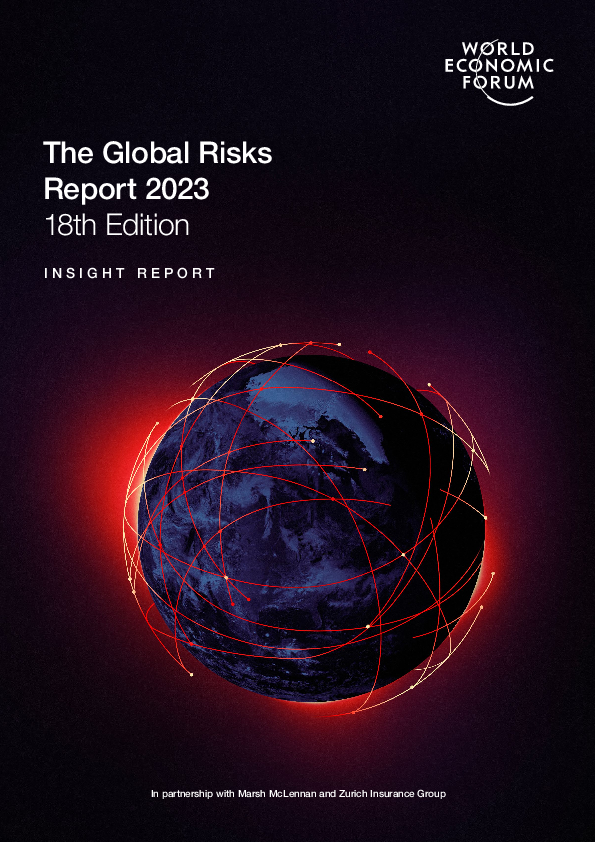 Read this article in French
Read this article in French- Share this article
- Subscribe to our newsletter
Global Risks Report 2023
Conflict and geo-economic tensions have triggered a series of deeply interconnected global risks, according to the latest edition of the Global Risks Report published by the World Economic Forum in January 2023. The risks include energy and food supply crunches, which are likely to persist for the next two years, and significant increases in the cost of living and debt servicing. At the same time, these crises could exacerbate longer-term risks, particularly around climate change, biodiversity and investment in human capital.
The report, produced in partnership with Marsh McLennan and Zurich Insurance Group, draws on the views of over 1,200 global risk experts, policy-makers and industry leaders. Looking at current, short-term and long-term crises (over two and ten years, respectively), it paints a picture of the global risks landscape that is both new and eerily familiar: the world faces many pre-existing risks that previously appeared to be receding.
At present, the global pandemic and war in Europe have brought energy, inflation, food and security crises back to the fore. These create follow-on risks that will dominate the next two years: recession, growing debt distress, a continued cost of living crisis, societies polarised by disinformation and misinformation, a hiatus on rapid climate action, and zero-sum geo-economic warfare.
Unless the world cooperates more effectively on climate change mitigation and adaptation, the next 10 years will see continued global warming and ecological breakdown. Failure to mitigate and adapt to climate change, natural disasters, biodiversity loss and environmental degradation are five of the top ten risks – with biodiversity loss one of the most rapidly escalating global risks over the next decade. In parallel, crisis-driven leadership and geopolitical rivalries risk creating unprecedented levels of societal distress, as investments in health, education and economic development disappear, further eroding social cohesion. Finally, growing rivalries could not only lead to increased geo-economic weaponisation but also remilitarisation, especially through new technologies and rogue actors.
The coming years will present tough trade-offs for governments facing competing concerns for society, the environment and security. Already, short-term geo-economic risks are putting net-zero commitments to the test and have exposed a gap between what is scientifically necessary and politically palatable. We need a dramatic increase in collective action on the climate crisis in order to limit the consequences of a warming world. Meanwhile, security considerations and increasing military expenditure may leave less fiscal headroom to cushion the impacts of an elongated cost of living crisis. Without a change in trajectory, vulnerable countries could enter a perpetual state of crisis where they are unable to invest in future growth, human development and green technologies.
(WEF/ile)
Read more and download the report on the WEF website





Add a comment
Be the First to Comment